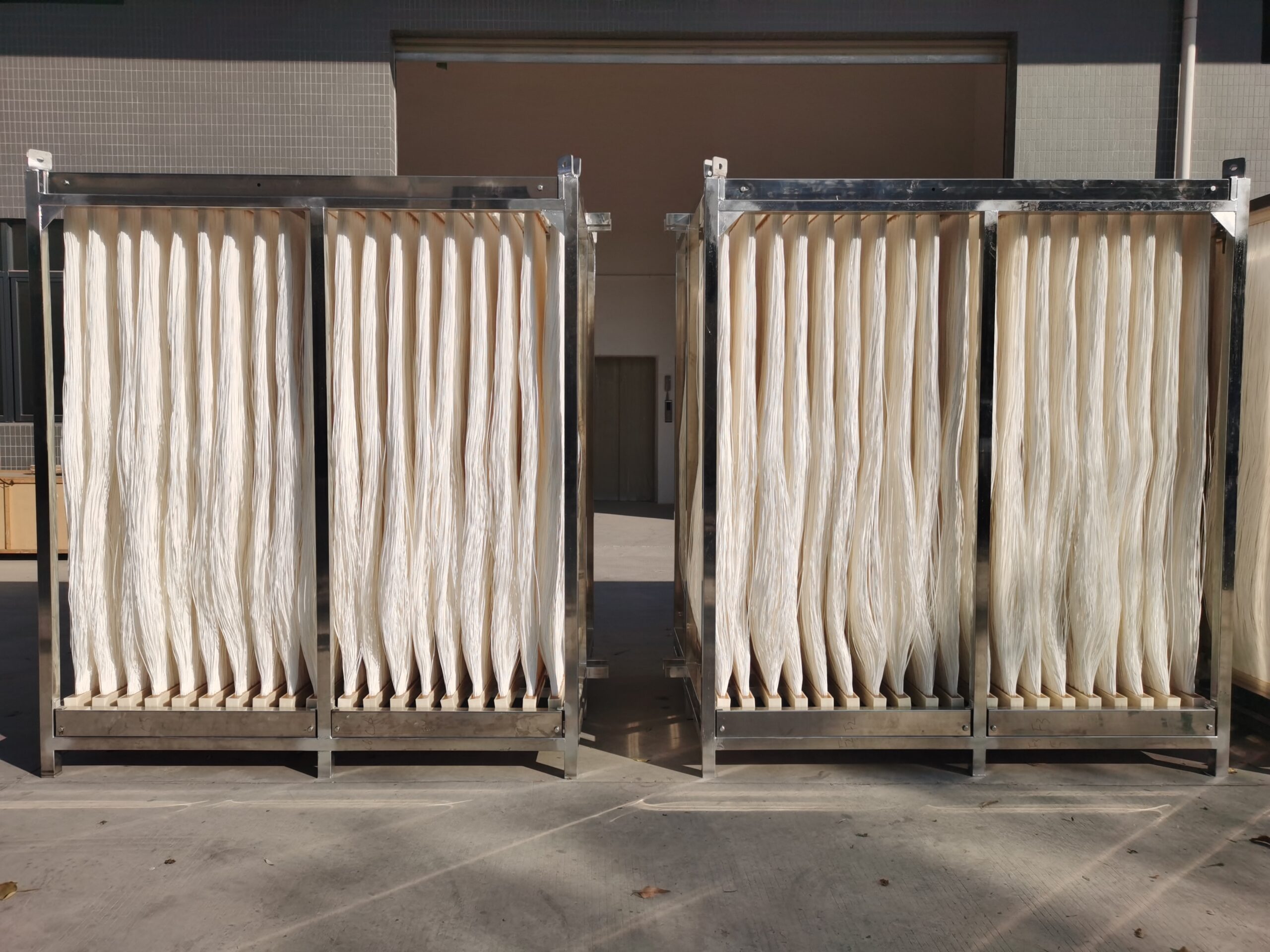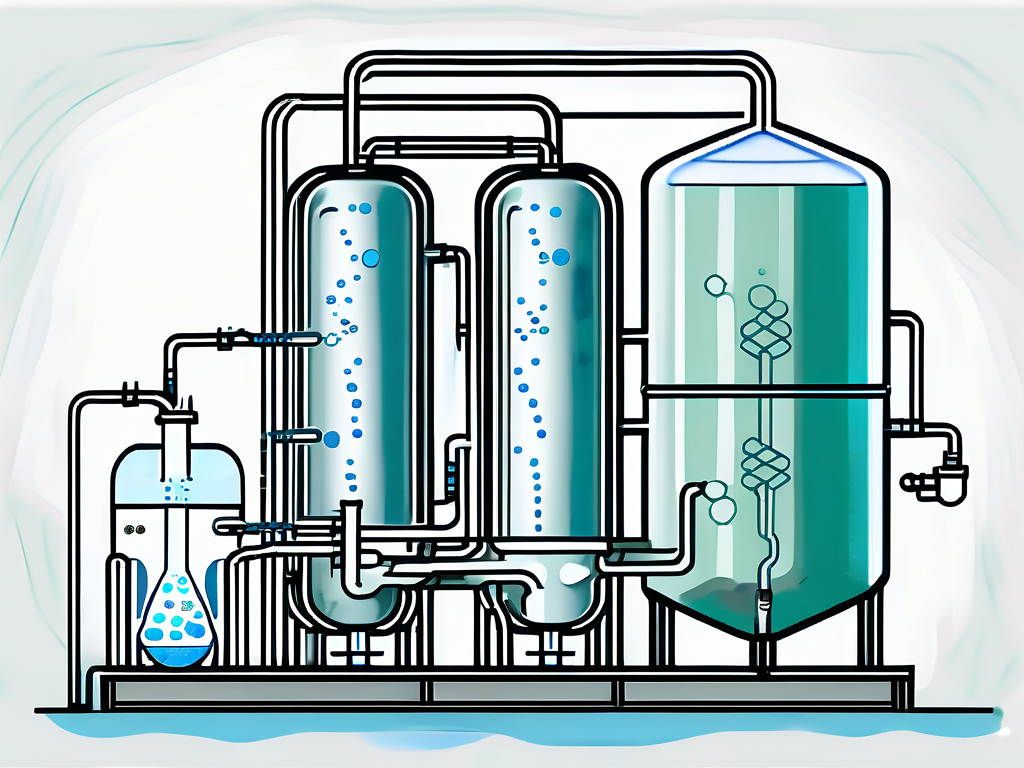The Economic Benefits of Installing a Membrane Bioreactor for Your Facility
The Benefits of Membrane Bioreactors in Sustainable Wastewater Management
Membrane layer bioreactors (MBRs) stand for a crucial advancement in lasting wastewater management, properly combining organic therapy with advanced membrane purification technology. This assimilation not only improves effluent high quality by successfully getting rid of contaminants but also opens up opportunities for water reuse in various applications, thus addressing journalism requirement for resource conservation. The small layout of MBRs adds to substantial reductions in ecological impact and operational costs. As the need for sustainable solutions magnifies, checking out the complex advantages of MBRs may reveal unexpected implications for the future of wastewater treatment systems.
Introduction of Membrane Layer Bioreactors
Membrane layer bioreactors (MBRs) represent a significant development in wastewater treatment technology, integrating organic deterioration with membrane layer filtering to enhance the efficiency of the therapy procedure. This innovative system integrates the advantages of standard triggered sludge procedures with membrane innovation, enabling improved solid-liquid separation. MBRs use semi-permeable membranes to separate treated water from biomass, causing top quality effluent that can be recycled or safely released right into the setting.
The operational style of MBRs commonly entails a bioreactor where bacteria break down natural issue, followed by a membrane layer device that filterings system the blended liquor. This arrangement not just minimizes the impact of the treatment facility but likewise permits higher biomass focus and lowered hydraulic retention times. MBRs are capable of dealing with a larger variety of contaminants, consisting of nutrients and pathogens, making them ideal for different applications, from local wastewater treatment to industrial effluent processing.
The integration of MBRs right into wastewater management systems is indicative of an expanding pattern in the direction of lasting and effective techniques in ecological design. Their capability to generate premium effluent while minimizing space demands settings MBR technology as a principal in modern wastewater treatment services.
Boosted Effluent High Quality

The membrane filtration process acts as a physical obstacle, enabling the retention of microbes and particulate issue, which adds to a more clear and cleaner effluent (Membrane Bioreactor). Furthermore, MBRs run at higher biomass concentrations than traditional activated sludge systems, advertising extra effective biodegradation of pollutants. This causes a reduction in biochemical oxygen need (BOD) and complete put on hold solids (TSS) levels in the last effluent
Additionally, MBRs show superb efficiency in treating tough wastewater structures, such as commercial effluents and wastewater with high nutrient lots. Because of this, the effluent created is typically of higher top quality, enabling more adaptable disposal choices and reduced ecological impact. Inevitably, the improved effluent top quality attained via MBR innovation underscores its essential role in progressing lasting wastewater monitoring methods.
Water Reuse Opportunities
The top quality effluent created by membrane bioreactors (MBRs) opens up significant possibilities for water reuse in various applications. check that MBRs successfully get rid of pollutants, including microorganisms, suspended solids, and natural matter, leading to cured water that fulfills or surpasses governing standards for reuse. This top quality permits the execution of water recycling initiatives across varied industries.
One popular application is in farming, where dealt with wastewater can be used for irrigation, promoting sustainable farming methods while preserving fresh water sources. Furthermore, MBR-treated effluent can be used for industrial processes such as cooling, cleaning, and as a process water source, considerably decreasing the need for safe and clean water in these procedures.
In city atmospheres, MBRs help with using recovered water for landscape watering, bathroom flushing, and various other non-potable uses, adding to the overall resilience of water supply systems. Additionally, the integration of MBR technology in decentralized systems aids in taking care of local water demands, especially in water-scarce regions.
Decreased Ecological Impact
Exactly how can the fostering of membrane bioreactors (MBRs) add to a decreased environmental impact in wastewater management? MBRs substantially enhance the treatment performance of wastewater while lessening environmental disturbances. By incorporating organic therapy procedures with membrane filtering, MBRs efficiently get rid of a large range of toxins, including raw material, nutrients, and virus. This innovative filtration brings about higher-quality effluent, which is critical for shielding water ecological communities and reducing the problem on natural water bodies.
Moreover, MBRs operate at reduced hydraulic retention times compared to conventional systems, leading to smaller therapy plant impacts. This small style minimizes land usage, thereby protecting all-natural habitats and biodiversity. The procedure also produces much less sludge than conventional methods, alleviating disposal difficulties and lowering greenhouse gas exhausts connected with sludge management.
In addition, MBRs facilitate the healing of important sources, such as water and nutrients, adding to a circular economic climate. By allowing water reuse for irrigation or commercial processes, MBRs aid reduce freshwater scarcity, therefore promoting sustainable water make use of practices. Ultimately, the adoption of MBR modern technology stands for a substantial stride in the direction of decreasing the environmental influence of wastewater management systems.
Financial Benefits of MBRs

In addition, MBRs facilitate the manufacturing of top quality effluent, which can be recycled for numerous applications, such as agricultural irrigation and industrial procedures - Membrane Bioreactor. redirected here This reuse capacity can considerably reduce water purchase prices, supplying a monetary motivation for industries encountering strict water laws
The compact style of MBR systems also leads to lowered land requirements, which is particularly valuable in metropolitan locations where property is pricey. By lessening room, communities and industries can save on land acquisition and upkeep expenditures.
Furthermore, MBRs often require less constant upkeep and have a longer lifespan than traditional systems, further adding to cost financial savings. In recap, the economic advantages of MBRs-- varying from reduced operational costs to land cost savings and effluent reuse-- make them an engaging selection for sustainable wastewater administration, supplying both prompt and long-term financial benefits.
Conclusion
Membrane bioreactors represent i was reading this a transformative technique to sustainable wastewater administration, incorporating biological treatment with advanced membrane layer filtration for remarkable effluent quality. Their ability for effective pollutant elimination facilitates water reuse, thus preserving crucial freshwater sources. In addition, MBRs add to lowered ecological impacts via small layouts and reduced sludge generation. Economic advantages additionally boost their stability, making MBRs an encouraging service for resolving the challenges of wastewater treatment and advertising lasting source management.
Membrane bioreactors (MBRs) stand for an essential innovation in sustainable wastewater monitoring, efficiently merging biological therapy with advanced membrane layer filtering innovation.Membrane bioreactors (MBRs) stand for a significant innovation in wastewater therapy innovation, integrating biological deterioration with membrane purification to boost the performance of the treatment process.Achieving improved effluent high quality is one of the most considerable benefits of using membrane bioreactors (MBRs) in wastewater treatment.In addition, MBRs demonstrate superb performance in dealing with challenging wastewater structures, such as industrial effluents and wastewater with high nutrient lots.Integrating membrane layer bioreactors (MBRs) right into wastewater monitoring not only lowers environmental impact yet likewise provides significant financial advantages.